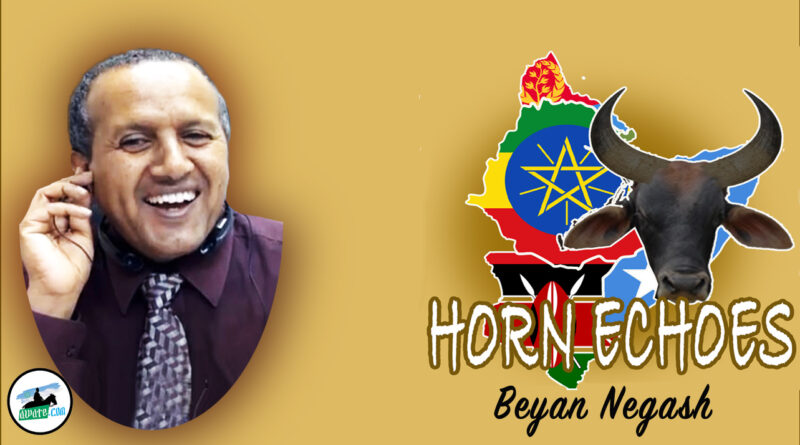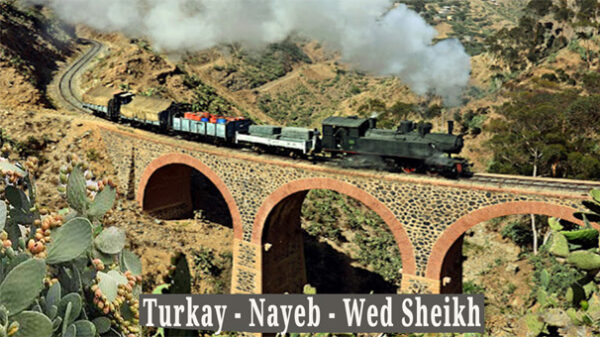When Trust Speaks Multiple Languages

The conversation on trust began in Arabic, when Abdulrazig Karrar invited readers to reflect on how a wounded public might rebuild its moral ground. His words, published in Adoulis, stirred more than sentiment. They reopened an old question: how can a people fractured by suspicion and silence learn again to live in truth? I responded in kind, writing in both Arabic and English to test whether meaning could travel without losing dignity. Zein Shokai then joined the circle with his essay, Conditions Required for Trust Building, offering the moral architecture that this fragile conversation required. Three voices, speaking in different tongues, reaching for the same horizon.
What binds these writings is not uniformity of opinion, but the courage to listen across difference. In Arabic, trust carries the gravity of moral obligation. In English, it leans toward civic accountability. Between the two lies a wide field of translation where meaning is not lost but reborn. When language ceases to be a border and becomes a meeting ground, the horizon itself begins to move closer. Each tongue brings its own memory of loss and longing, its own idiom for hope. To reach for the same horizon is to accept that it belongs to no single language or generation. It belongs to those willing to carry their words toward one another until understanding begins to take root.
Zein’s reflections sketched the moral contours of trust with clarity and empathy. Where his article urged ethical renewal, this response seeks to translate that renewal into structure. If the first act of trust is to cleanse intention, the second is to build the spaces where intention can dwell. Between Adoulis and Awate.com, an opportunity now stands open: to turn linguistic differences into a civic bridge.
Trust as a Shared Public Space
Trust begins in cross-reading and matures in co-ownership. For too long, Arabic and English readers have occupied parallel alleys. Each has spoken to its own audience, drawing strength and isolation from the same well. Adoulis and Awate.com
The three essays on trust live for now on one side of that linguistic bridge. None have yet reached Awate.com. Yet it is precisely there that the next step must occur. Awate can help transform dialogue into continuity by housing these reflections and allowing them to converse openly. To publish them side by side, in their original tongues and in translation, would not be a mere editorial gesture. It would be an act of civic repair.
Trust cannot thrive inside a single language. It must move between them, breathe through them, and allow itself to be tested by translation. When an Arabic reflection finds its echo in English, and one day in Tigrinya, something more profound than linguistic exercise takes place. What emerges is a shared public space, a moral commons in which every voice retains its texture yet contributes to a collective rhythm.
This is not a call for uniformity. It is a call for reciprocal hospitality. Every language, like every culture, carries both a story and a wound. To let them meet is to allow healing to begin in the open.
From Reflection to Stewardship
The time has come for stewardship. Reflection, however sincere, reaches its limit when it remains confined to individual conscience. Zein reminded us that trust cannot be legislated; it must be lived. The same principle applies to dialogue. To sustain it, we must build the institutions—however modest—that allow conversation to survive disagreement.
Awate.com is uniquely positioned to assume this role. Its archive already holds two decades of engagement across ideological, generational, and geographical lines. It has witnessed the evolution of diaspora thought and the quiet persistence of Eritrean civic life online. What it lacks is not credibility but a new framework—one that extends beyond a single linguistic tradition. To open its pages to reflections that originated in Arabic and to invite their translation and response would mark a turning point.
This stewardship does not mean replacing Adoulis or any Arabic platform. On the contrary, it means affirming complementarity. Adoulis has cultivated depth within Arabic readership; Awate can extend that dialogue into English and eventually into Tigrinya. Together they can model how an idea grows stronger when it crosses linguistic frontiers.
Such stewardship would require patience, editorial coordination, and above all, humility. It asks Awate to become not just a publisher but a caretaker of continuity—a place where ideas can travel without losing their integrity. In doing so, it would help rewrite the civic contract of our public discourse: that every voice, however different, deserves to be heard in translation.
The Next Language of Trust
The next language of trust will not be a new tongue, but a new habit. It will be the discipline of listening without possession, of translating without distortion, of disagreeing without rupture. Writers, editors, and readers all share responsibility for shaping this language.
For writers, it means resisting the temptation to speak only to familiar audiences. The measure of an idea’s worth lies not in applause but in its capacity to cross thresholds. For editors, it means curating dialogue rather than monologue, inviting reflection rather than reaction. For readers, it means approaching every text as a bridge, not a battlefield.
If Awate.com and Adoulis were to form a deliberate partnership—mirroring publications, hosting joint translations, exchanging editorial reflections—they would lay the groundwork for a civic model that others could emulate. In time, a Tigrinya outlet could join, completing a triangle of trust that mirrors the linguistic reality of Eritrea itself. The result would be a living laboratory of dialogue: an Eritrean public sphere that reflects the nation’s multilingual heart rather than its political fractures.
Translation in such a space would not be a technical exercise. It would be a moral one. To translate is to trust that another’s words are worth carrying, even when they unsettle. To publish a translation is to affirm that the other tongue has an equal claim to truth. Through such acts, citizenship is quietly renewed.
This is the work ahead: to transform the exchange of words into the exchange of trust, until difference itself becomes a shared inheritance.
Toward a Common Horizon
The first three essays on trust began as scattered ripples, yet they now converge into a current. Each spoke from its own terrain, yet all were searching for the same horizon: the recovery of dialogue as a moral practice. What joins them is not agreement but endurance. They testify that trust grows wherever the will to listen surpasses the habit of dismissal.
If Adoulis carried the first voice, and this reflection extended it into English, then the next horizon belongs to Awate.com. Its legacy as a home for diverse thought makes it the natural steward of this widening conversation. To host these essays together—Arabic, English, and one day Tigrinya—would not only enrich its readership but also redefine what a public forum can be. It would transform Awate from a house of commentary into a house of connection.
The horizon is no longer distant. It gathers wherever writers choose humility over rivalry, wherever platforms choose to echo rather than to compete. Trust is not a goal but a path, traced anew with every step toward understanding.
So let this be an invitation to all who have written, read, or translated in isolation. Let us continue the dialogue that began in Adoulis and may yet find its home in Awate.com. Let the Arabic, English, and Tigrinya words for trust meet on the same page, learning to hear one another until meaning begins to breathe again. When that happens, we will know that the horizon we sought was never beyond reach. It was simply waiting for us to speak.




Awate Forum